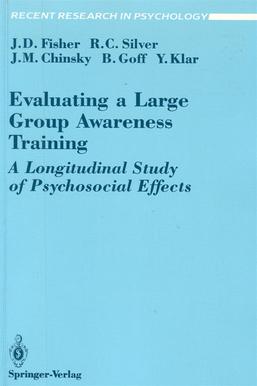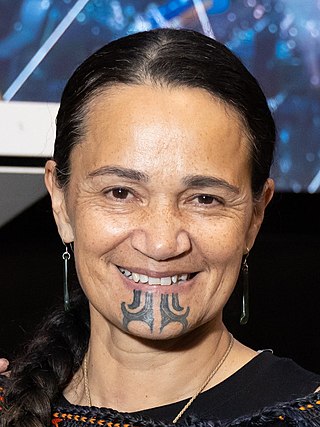Related Research Articles

Psychology is the study of mind and behavior in humans and non-humans. Psychology includes the study of conscious and unconscious phenomena, including feelings and thoughts. It is an academic discipline of immense scope, crossing the boundaries between the natural and social sciences. Psychologists seek an understanding of the emergent properties of brains, linking the discipline to neuroscience. As social scientists, psychologists aim to understand the behavior of individuals and groups.

Psychotherapy is the use of psychological methods, particularly when based on regular personal interaction, to help a person change behavior, increase happiness, and overcome problems. Psychotherapy aims to improve an individual's well-being and mental health, to resolve or mitigate troublesome behaviors, beliefs, compulsions, thoughts, or emotions, and to improve relationships and social skills. Numerous types of psychotherapy have been designed either for individual adults, families, or children and adolescents. Certain types of psychotherapy are considered evidence-based for treating some diagnosed mental disorders; other types have been criticized as pseudoscience.

The American Psychological Association (APA) is the largest scientific and professional organization of psychologists in the United States, with over 146,000 members, including scientists, educators, clinicians, consultants, and students. It has 54 divisions—interest groups for different subspecialties of psychology or topical areas. The APA has an annual budget of around $125 million.

A psychologist is a professional who practices psychology and studies mental states, perceptual, cognitive, emotional, and social processes and behavior. Their work often involves the experimentation, observation, and interpretation of how individuals relate to each other and to their environments.

Applied psychology is the use of psychological methods and findings of scientific psychology to solve practical problems of human and animal behavior and experience. Educational and organizational psychology, business management, law, health, product design, ergonomics, behavioural psychology, psychology of motivation, psychoanalysis, neuropsychology, psychiatry and mental health are just a few of the areas that have been influenced by the application of psychological principles and scientific findings. Some of the areas of applied psychology include counseling psychology, industrial and organizational psychology, engineering psychology, occupational health psychology, legal psychology, school psychology, sports psychology, community psychology, neuropsychology, medical psychology and clinical psychology, evolutionary psychology, human factors, forensic psychology and traffic psychology. In addition, a number of specialized areas in the general area of psychology have applied branches. However, the lines between sub-branch specializations and major applied psychology categories are often mixed or in some cases blurred. For example, a human factors psychologist might use a cognitive psychology theory. This could be described as human factor psychology or as applied cognitive psychology. When applied psychology is used in the treatment of behavioral disorders there are many experimental approaches to try and treat an individual. This type of psychology can be found in many of the subbranches in other fields of psychology.

Forensic psychology is the practice of psychology applied to the law. Forensic psychology is the application of scientific knowledge and methods to help answer legal questions arising in criminal, civil, contractual, or other judicial proceedings. Forensic psychology includes research on various psychology-law topics, such as jury selection, reducing systemic racism in criminal law, eyewitness testimony, evaluating competency to stand trial, or assessing military veterans for service-connected disability compensation. The American Psychological Association's Specialty Guidelines for Forensic Psychologists reference several psychology subdisciplines, such as social, clinical, experimental, counseling, and neuropsychology.

Clinical psychology is an integration of human science, behavioral science, theory, and clinical knowledge for the purpose of understanding, preventing, and relieving psychologically-based distress or dysfunction and to promote subjective well-being and personal development. Central to its practice are psychological assessment, clinical formulation, and psychotherapy, although clinical psychologists also engage in research, teaching, consultation, forensic testimony, and program development and administration. In many countries, clinical psychology is a regulated mental health profession.

Counseling psychology is a psychological specialty that began with a focus on vocational counseling, but later moved its emphasis to adjustment counseling, and then expanded to cover all normal psychology psychotherapy. There are many subcategories for counseling psychology, such as marriage and family counseling, rehabilitation counseling, clinical mental health counseling, educational counseling, etc. In each setting, they are all required to follow the same guidelines.

The Australian Psychological Society (APS) is the peak body for psychology in Australia. The APS has more than 27,000 members, making it the largest professional body representing psychologists in Australia. The Society's Code of Ethics was adopted in 2007 and became the Code of Ethics for the profession in Australia in 2010 when it was taken up by the newly formed Psychology Board of Australia. The APS also provides members with recommendations of appropriate fees to charge for their professional services.

Evaluating a Large Group Awareness Training: A Longitudinal Study of Psychosocial Effects is a non-fiction psychology book on Large Group Awareness Training, published in 1990 by Springer-Verlag. The book was co-authored by psychologists Jeffrey D. Fisher, Roxane Cohen Silver, Jack M. Chinsky, Barry Goff, and Yechiel Klar. The book was based on a psychological study of "The Forum", a course at the time run by Werner Erhard and Associates. Results of the study were published in two articles in the Journal of Consulting and Clinical Psychology in 1989 and 1990. Fisher and co-authors gave initial context for the study, providing analysis and discussion of academic literature in psychology regarding Large Group Awareness Training.

Military psychology is a specialization within psychology that applies psychological science to promote the readiness of military members, organizations, and operations. Military psychologists provide support to the military in many ways, including through direct clinical care, consultation to military commanders, teaching others and supporting military training, and through research relevant to military operations and personnel. Military psychology as a field has been growing since the early 20th century, evidence that the demands and needs for psychological clinical and operational application is continuing to grow steadily. There are many stressors associated with military service, including exposure to high-risk training and combat. As such, psychologists are critical support components that assist military leaders in designing appropriate training programs, providing oversight to those programs, and assisting military members as they navigate the challenges of military training and their new lifestyle. Military psychology covers a wide range of fields throughout the military including operational, tactical, and occupational psychology. Gender differences between military-trained personnel who seek mental health assistance have been extensively studied. Specific examples include post traumatic stress disorder (PTSD) associated with combat, or guilt and family/partner difficulties accompanying extended or frequent deployments due to separation. Clinical providers in military psychology are often focused on the treatment of stress, fatigue, and other personal readiness issues. Previous wars such as the Korean war, Vietnam war, and WW 2 provide great insight to the workings and practices of military psychology and how the practices have changed and assisted the military over the years.
Rodney L. Lowman is an American psychologist, academic administrator and entrepreneur whose major contributions have been in the areas of career assessment and counseling, ethical issues in Industrial and Organizational Psychology, the integration of clinical psychology and I-O psychology and helping to develop the field of consulting psychology. In a study of the most prolific contributors to the Consulting Psychology Journal: Practice and Research, Lowman was rated the second highest contributor for articles for the period 1992–2007.
Gerald Paul Koocher is an American psychologist and past president of the American Psychological Association (APA). His interests include ethics, clinical child psychology and the study of scientific misconduct. He is Dean Emeritus Simmons University and also holds an academic appointment at Harvard Medical School. Koocher has over 300 publications including 16 books and has edited three scholarly journals including Ethics & Behavior which he founded. Koocher was implicated as an author of the so-called "torture memos" that allowed psychologists to participate in torture during interrogations in the Hoffman Report, an APA investigation into psychologists' involvement in interrogation at Guantanamo Bay, Cuba.
In the mental health field, a dual relationship is a situation where multiple roles exist between a therapist, or other mental health practitioner, and a client. Dual relationships are also referred to as multiple relationships, and these two terms are used interchangeably in the research literature. The American Psychological Association (APA) Ethical Principles of Psychologists and Code of Conduct is a resource that outlines ethical standards and principles to which practitioners are expected to adhere. Standard 3.05 of the APA ethics code outlines the definition of multiple relationships. Dual or multiple relationships occur when:
Clinton W. McLemore is an American psychologist and author.
Elizabeth Mitchell Altmaier is a counseling psychologist whose clinical and academic work has focused on issues related to overcoming life-threatening and traumatic circumstances. Altmaier is Professor Emeritus at the University of Iowa.

Waikaremoana Waitoki is a New Zealand clinical psychologist, academic, and former president of the New Zealand Psychological Society from 2020 until 2022. She is a senior lecturer at the University of Waikato, and focuses her research on indigenous psychology, Mātauranga Māori and cultural competency.
Many health organizations around the world have denounced and criticized sexual orientation and gender identity change efforts. National health organizations in the United States have announced that there has been no scientific demonstration of conversion therapy's efficacy in the last forty years. They find that conversion therapy is ineffective, risky and can be harmful. Anecdotal claims of cures are counterbalanced by assertions of harm, and the American Psychiatric Association, for example, cautions ethical practitioners under the Hippocratic oath to do no harm and to refrain from attempts at conversion therapy.
The New Zealand Psychological Society (NZPsS) is one of the professional associations for psychologists in New Zealand. It is the largest professional body for psychologists in New Zealand, providing for both research psychologists and practicing psychologists.
References
- ↑ Lang, Sarah (12 April 2022). "The troubling therapist shortage in NZ - why we can't find help". Stuff . Retrieved 29 November 2022.
- ↑ "National Executive". New Zealand College of Clinical Psychologists. Retrieved 29 November 2022.
- 1 2 3 "The New Zealand College of Clinical Psychologists Members Handbook" (PDF). New Zealand College of Clinical Psychologists. 2022. Retrieved 29 November 2022.
- ↑ Evans, Ian M (2002). "Clinical psychology in early 21st century Aotearoa/New Zealand: Introduction to the special issue". New Zealand Journal of Psychology. 31 (2): 50. ISSN 0112-109X.
- 1 2 Manthei, Robert; Stanley, Peter; Gibson, Kerry (2004). "Counselling and Counselling Psychology in New Zealand: Similarities and Differences". New Zealand Journal of Counselling. 25 (1). ISSN 1171-0365.
- ↑ Code of Ethics for Psychologists Working in Aotearoa/New Zealand (PDF) (Report). The New Zealand Psychological Society, New Zealand College of Clinical Psychologists, New Zealand Psychologists Board. 2008. Retrieved 29 November 2022.
- ↑ Freeman-Brown, Jane (2013). "Why keep offenders' secrets? The pros and cons of confidentiality". The New Zealand Corrections Journal. 1 (1): 18.
- ↑ Dixon, B. (23–24 August 1993). "Ethics systems in the New Zealand psychological society". In Nikora, L.W. (ed.). Cultural Justice and Ethics. Proceedings of a symposium held at the Annual Conference of the New Zealand Psychological Society. University of Victoria, Wellington. pp. 21–25.
- ↑ Fairley, Nigel (August 2006). "The President's Word" (PDF). ShrinkRAP. ISSN 1175-3110 . Retrieved 29 November 2022.
- ↑ Stewart, Malcolm (Spring 2020). "Presi-Rap" (PDF). ShrinkRAP. ISSN 1175-3110 . Retrieved 29 November 2022.